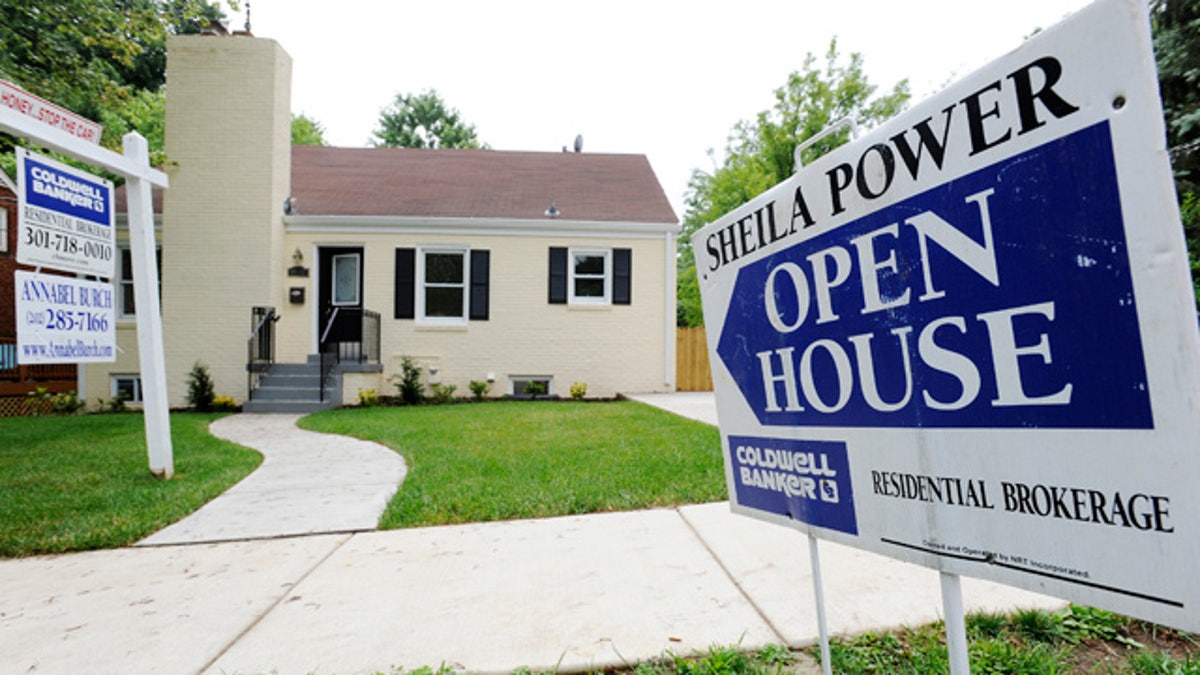
(Reuters)
In the midst of a stalled economy it's a wonder anyone feels like making a big financial purchase like buying a home -- long perceived as a large part of the American dream.
But dismal economic reports, rising foreclosures and plummeting home values have done little to deter the hopes of would-be homebuyers. Some are even looking for a bargain, and to take advantage of low interest rates.
But, is it really wiser to buy during a time of economic uncertainty? Or is renting a better bargain?
Cape Cod real estate expert and agent Danny Griffin says now is a great time to make a home purchase, but only if the prospective homebuyer has the capital to make the investment.
"We do get more calls than we've ever had for rentals, but first thing we're going to tell them, or ask them, is have you ever sat down with a mortgage broker and asked, 'Can I qualify for a loan? Because there is no better time to consider buying," said Griffin.
Caitlyn Sweeney and Joe Maddalena are shopping for their first place in Marstons Mills, Massachusetts. Both work full time. Joe is an assistant golf course superintendent and Caitlyn is a teacher. She brings in some additional funds by managing a restaurant on weekends. They are determined to escape the rental market and want to take advantage of plummeting home prices, while also enjoying the satisfaction of owning something.
"You're putting a lot of money into something that's not yours. You don't get to change anything, decorate the way you want to, you don't have a yard, you don't have extra rooms," explains Sweeney, who's looking forward to making her mark on a new place.
While many homebuyers look forward to creating their own individualized space, Maddalena says their plan to buy is more than an emotional decision. They have their finances in order. "I think we're both at an age now where our jobs are secure, we've saved up some money and houses are at reasonable price," said Maddalena.
"So the smart buyer is coming in now and saying, okay, finally, I can buy these at a normal price again and it's affordable for me and I can live within my means," said Griffin.
"It's already happening in most of the majorly hit markets in the United States, especially Las Vegas, California, Florida -- all of the over-inflated places like that are beginning to hold. You're seeing people come into that marketplace, whether they be first time homebuyers, second homebuyers, they're beginning to say 'Hey, this is a reasonable price and I need to be invested in this now.'"
Despite the desire to own a home, renting does have some obvious pluses say experts: most notably no property taxes, no upkeep costs, no paying for a new roof or dishwasher. Some landlords will even change a light bulb. In some communities renting may be the more affordable option.
Trulia, an online real estate tracking site, released its quarterly Rent vs. Buy Index last week, which looks at the costs of home ownership and renting in America's 50 largest cities. Trulia's experts compare the average cost of buying a two-bedroom apartment, condo or town home to the cost of renting using the properties listed on the site. Topping the list where rents are cheaper than buying was New York City, followed by Seattle; Fort Worth, Tex.; Omaha, Neb. and Sacramento, Calif.
Trulia's experts say these cities share a common denominator: they are major regional employment hubs.
"Homebuyers want to live where jobs are and where they believe they'll be able to get jobs in the future," said Tara-Nicholle Nelson, a real estate broker and lawyer who focuses on consumer education for Trulia. The economic draw also pushes up prices, making rental rates a much better deal for some consumers.
The index showed home ownership was more affordable than renting in Arlington, Tex.; Fresno, Calif.; Miami and Mesa and Phoenix in Arizona.
In these types of communities, "we see a real pattern of foreclosure hot spots," said Nelson. "Prices have dropped a lot in these cities and their rental markets have seen a huge influx of renters." Nelson is quick to point out the index is just a "snapshot in time," not an indication of what a given family or individual should do.
"Just because a place is on that list doesn't mean it's unwise to buy depending on your personal circumstances," said Nelson, who believes that equation is much more personal and complicated, involving everything from financial assets to time commitments and stability.








































